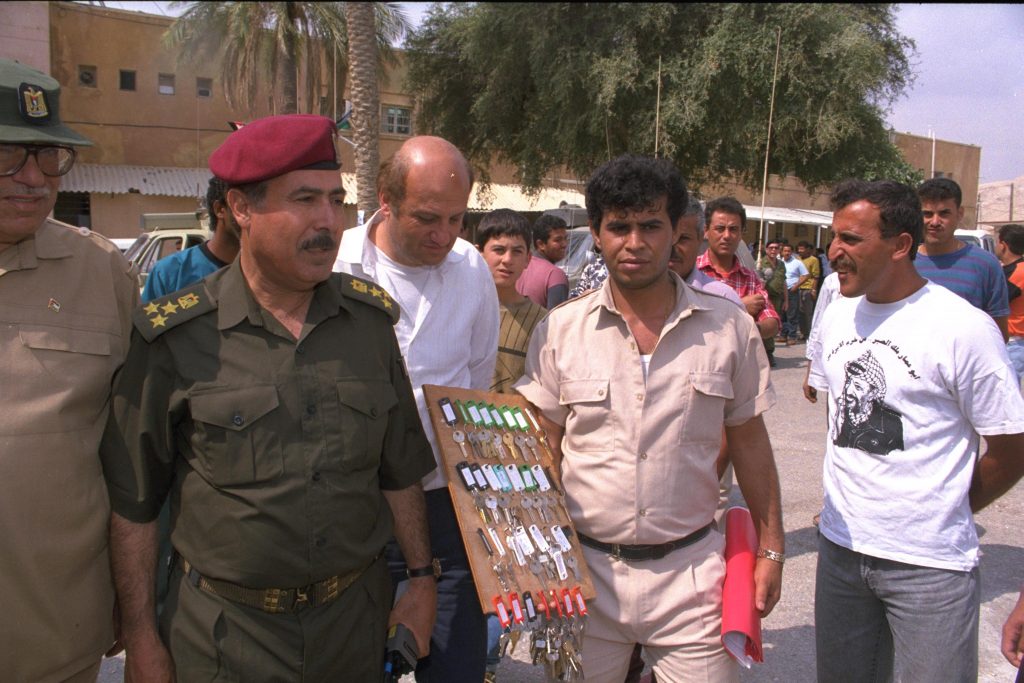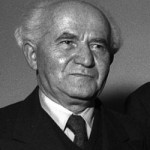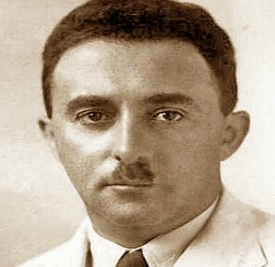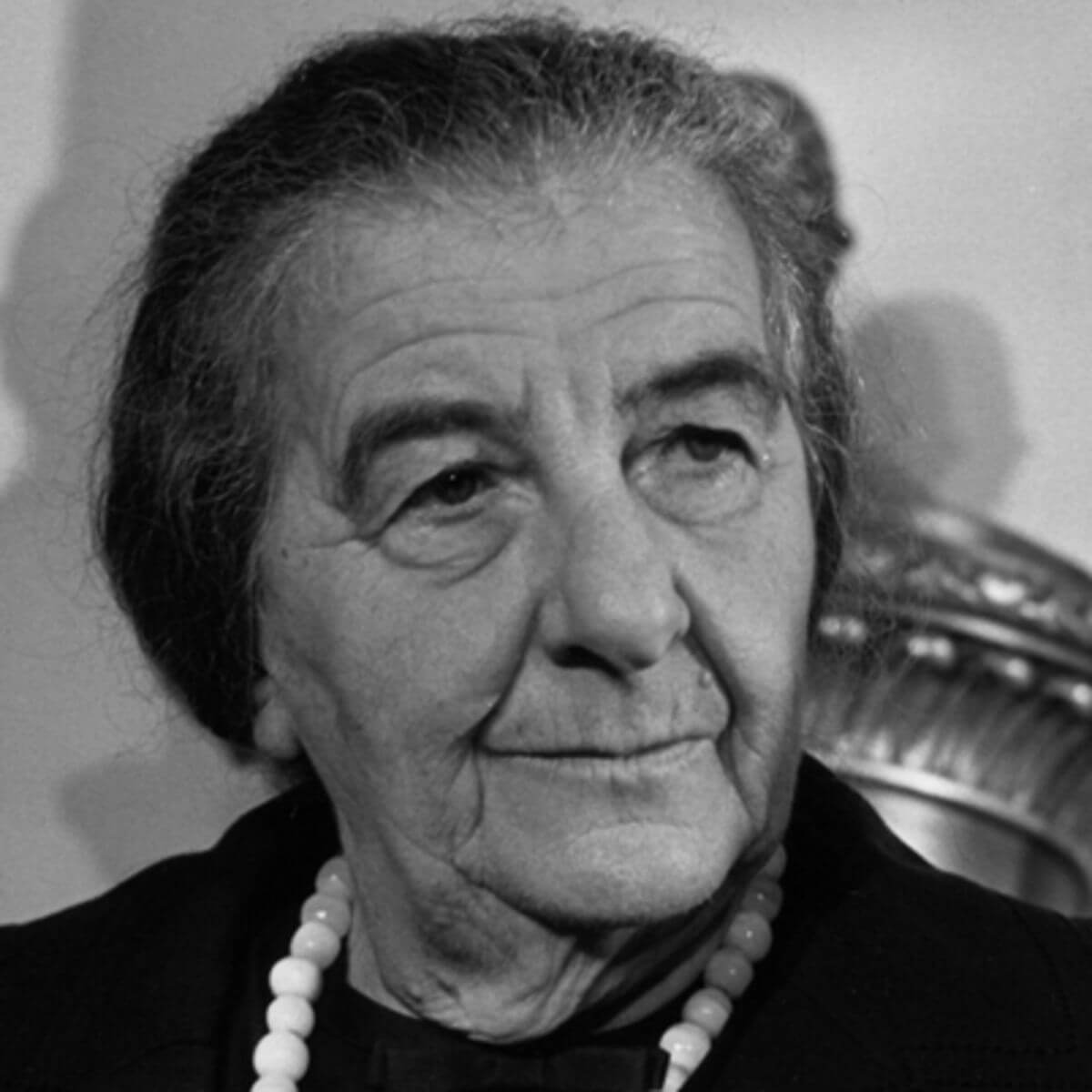.1 | Preparations for the transfer of responsibility for security in Gaza and Jericho to the Palestinians
After the dramatic signing ceremony in Cairo, Israel and the Palestinians made preparations for the implementation phase. According to the agreement, the IDF was to begin evacuating the Gaza Strip and Jericho immediately and to complete the process within three weeks. Preparations in the media began in Israel even earlier. On April 4, a month before the signing, the head of the Prime Minister’s bureau, Eitan Haber. sent Rabin and the Chief of Staff a paper on the media and information aspects of the withdrawal. Haber’s proposals related to the messages that, in his opinion, should accompany the move, to be directed towards Israelis, Palestinians and the international community. These were intended to reduce the damage to the image of the IDF and to Israel and to get over the message to the Palestinian population that the withdrawal is Israel’s contribution to progress in the peace process, and was made from a position of strength rather than weakness (Document 90).
On May 5, the Ministry of Foreign Affairs sent the Israeli missions abroad a statement by the IDF spokesman on the withdrawal detailing the security arrangements on the Gaza border to prevent infiltration and the smuggling of weapons into Israel, and to maintain the security of the Israeli settlements. The process also required the establishment of coordination and cooperation mechanisms with the Palestinians (Document 113). Arafat’s request to postpone the withdrawal in order to prepare raised many concerns, especially for Rabin. In a meeting with Norwegian Foreign Minister Bjorn Torre Godel in Cairo after the signing, Rabin said that Israel was not interested in postponing the evacuation but did not want to leave without being sure that responsibility was transferred to a body that would receive it in an orderly manner. He added that this was why he previously opposed unilateral withdrawal from Gaza (Document 114).
On May 13, an advance force of several hundred Palestinian policemen entered Jericho and took responsibility for the city, and a base in Khan Yunis was handed over to the Palestinian police

IDF soldiers fold up the flag before leaving Jericho, May 13, 1994. Photo: Avi Ohayon, GPO

Handing over the keys to the Hanan base to the Jericho police commander, 13.5.1994. Avi Ohayon, GPO.





